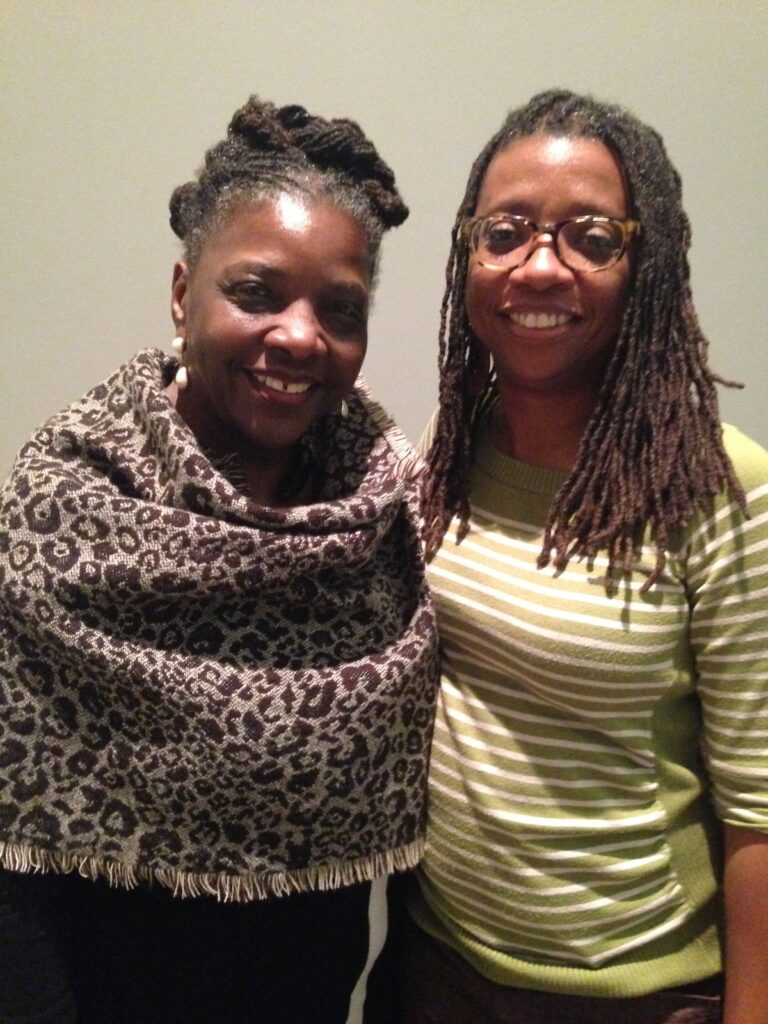First-Generation, Second Chance: Supporting Adult Learners

Dr. La’Tonya “LT” Rease Miles reflects on supporting first-generation college students, particularly adult learners, drawing from her mother’s experiences as well as her own.
Recently, I sat down with my mother to learn about her journey as a veteran and adult learner who earned a bachelor’s degree at age 40–five years after I graduated from college. We hold the distinction of both being proud first-generation students.
While the term “first-generation student” isn’t new to higher education, it is a segment of the college population that’s become a greater focus on many campuses. Fifty-six percent of all postsecondary students in the U.S. are considered first generation college students—that is, they have parents or caregivers who don’t hold bachelor’s degrees, according to the National Association of Student Personnel Administrators (NASPA).
NASPA also reports that nearly one-third of all currently enrolled first-generation college students are age 30 or above. However, not much is known about this growing population. (Forbes).

“I don’t know how anyone makes it to college if they don’t go right out of high school,” my mom said as she reflected upon her rollercoaster experience taking dozens of classes at community colleges in different states over several decades. My path was somewhat more traditional than hers although I, too, had stopped out of college for a period of time.
At ReUp, our Success Coach team supports hundreds of thousands of adult learners like my mom across the country to reach their educational goals. The ReUp learner quotes below show how motivated and difficult returning to school can be, especially when students are the first in their family to attend:
Thankfully, I only have classes Tuesday and Thursday this semester; that means I can work three full days a week.
I need help with my financial aid paperwork. All these numbers and boxes are daunting.
I’d love to attend more evening events on campus, but I have an hour commute home, so I usually leave after my last class.
I’m doing this for my family; I want my little brother to see anything is possible.
Being a first generation college student can come with many challenges. But for so many first-gen students–whether right out of high school or as an adult learner later in life–the drive to learn and succeed is undeniable.
First Generation. First-Hand Experience.
Today, there are more than 40.4 million students who started college left before earning a degree, or “Some College, No Credential (SCNC)” students, according to the National Student Clearinghouse (NSC). That’s why we’re here. ReUp Education works with our institutions of higher education (IHE) partners to help these former students achieve a dream they put on hold, and first-gens are among the most motivated we encounter.
Our diverse coaching team takes enormous pride in helping others return to school. And because many ReUp Success Coaches were the first in their families to earn a degree themselves, our coaches understand the motivations and challenges of first-generation students first-hand.
Understanding First-Generation College Students

Fully understanding the needs, circumstances, and assets of first-generation college students is crucial in finding ways to support them more effectively. This understanding starts with awareness on the part of institutions themselves.
Increased interest in research about first-generation college students has resulted in better data and more detailed anecdotal evidence about these students’ motivations, outcomes, hopes, and fears. For instance, the National Center for Education Statistics (NCES) reported in 2018 that 69% of first-generation students attend college to help their family, whereas 43% of continuing-generation students count that as one of their motivators.
This is in line with the insights extracted from ReUp’s own current database of adult learners, a large segment of which are first generation students. Engaged learners in our database tell ReUp that their top motivation to return is personal, or to finish what they started. For most first-gens, earning a degree may feel like more of a personal duty, whereas peers whose parents have attended college may attend because it’s what’s expected after high school.
The road to and through college for first-generation students may get bumpy at times. But with new research in hand, coupled with existing expertise and offerings, post-secondary institutions can make that ride a lot smoother.
Overcoming College Application Barriers
A common challenge that first-generation students often face is navigating the hidden curriculum of higher education. For instance, academia is known for its jargon, words like “bursar,” “matriculation,” “prerequisite,” and “registrar.” Those individuals who haven’t been through the college experience can find it challenging to understand this terminology, and therefore leave questions unanswered. Adult learners in particular may feel uninformed, given their time away from school. Offering an on-site website translation service is one way to address this barrier; for example, Georgia Tech’s Office of Student Integrity implemented Google and Bing translator into its site. Other schools, such as Middle Georgia State University have created online “jargon glossaries.”
After the college search, application, and financial aid process comes the transition to college life. Today, more institutions are changing processes and developing programs to be more intentional in helping first-gens with the adjustment.
Students on Campus, in Isolation
Without adequate support, community, and resources, it is unsurprising that 33% of first-generation college students leave within the first three years and are twice as likely to leave as their non-first-gen counterparts. Reasons for leaving go beyond academics: affordability, family obligations, illness or injury, or the need to work full-time. Many adult learners report that obtaining a postsecondary degree or credential is important to them. However, being a student may not be their top priority.
Through the student feedback we receive, ReUp has found that first-generation students more often doubt their sense of belonging or question if they deserve to be in college, especially if they are not immersed in traditional activities like clubs or sports. They also tend to feel left out when social activities require funds they might not have, or when after hours campus events conflict with their work schedules.
Adult learners who are first-generation to college may be even more susceptible to isolation if the campus is not intentional about drawing those students in and validating their lifestyles. Institutions often fail to acknowledge or reward prior experience, like military service or professional work. Mom shared with me that her best college experience was at a weekend designed specifically with adults in mind.
Reframing the Conversation
Not all first-generation students will identify as such during the recruiting process, so this poses a challenge for providing proactive support. It’s important to understand why some students might not ask for help, make their first-gen status known, or even be aware of their first-generation identity.
Many first-generation students, by nature or nurture, have become self-sufficient, generally a positive trait. ReUp Success Coach Stephanie Vore says this hesitation to seek help often comes up in conversations with students.
In these cases, she says, “We focus on reframing the thought process that asking for help doesn’t signal failure, but shows strength.”
Additionally, if there is too much focus on a parent’s level of education, an adult learner may not immediately make the connection to being first-gen, especially if they themselves are parents or caregivers. It is incumbent on the institution to clearly and regularly define what first-generation means and to offer the positive reasons why it matters.
First Generation. Second Chance.
With an increased understanding of the motivations and struggles of first-generation college students, institutions of higher learning have a real opportunity to adjust their policies, programs, and resources so that this population is on track for personal and professional success. But what about those who’ve already left?
ReUp works with incredibly hard-working, motivated stopout students, like my mom and me, who have experienced an obstacle at some point in their educational journey. Through our data-driven platform, our Success Coaches help returning students navigate the process of degree completion (read some of our Learner Stories here). Part of this one-on-one coaching involves pointing students to academic and financial resources, as well as providing information that might not have been explained to students the first time around.
Most importantly, our Success Coaches work with students to build a plan around their current life and work obligations—and help them stay on track through graduation.
To learn more about how we support stopout students, visit our Success Coaching page.
Dr. La’Tonya “LT” Rease Miles is Director of University Partnerships. A first-generation college graduate and former stop-out student, she regularly consults with institutions nationally concerning first-gen students and has advised four- and two-year institutions, as well as high schools, about developing strengths-based initiatives.
Let’s start the conversation
Schedule a call with a ReUp team member to learn more about what a ReUp partnership could do for your institution.